General
Symptoms
Treatment
Prevention
Canine Breeds with the Highest Incidence of Cancer
Types of Cancer
General
Cancer in dogs is the uncontrolled growth of abnormal cells on or within the body. Cancer cells develop because of damage to DNA, which can be genetic or caused by exposure to free radicals in the environment like smoke, radiation, chemical additives and preservatives in foods, pesticides/herbicides/insecticides, or other carcinogens. One manifestation of cancer is the development of a tumor. Cancerous tumors can spread to other parts of the body where the begin to grow and replace normal tissue — this process is called metastasis. While not all tumors are cancerous, they should be taken seriously and examined by a veterinarian.
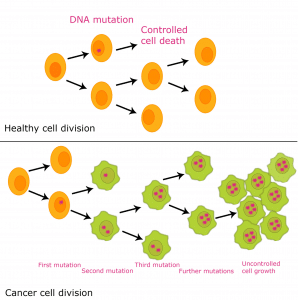
Symptoms — The warning signs of cancer
- Lameness or swelling of ligaments
- Abnormal bleeding
- A lump under the skin
- A wound that doesn’t heal
- Enlarged lymph nodes
- Weight loss
Treatment
Treatment options will depend upon the type and location of the cancer or tumor. Surgery is often the first step for malignant melanomas. If the melanoma cannot be entirely removed or has spread to nearby lymph nodes, radiation therapy is commonly used. Squamous Cell Carcinomas and Mast Cell Tumors can often be removed surgically with no need for radiation or chemotherapy.
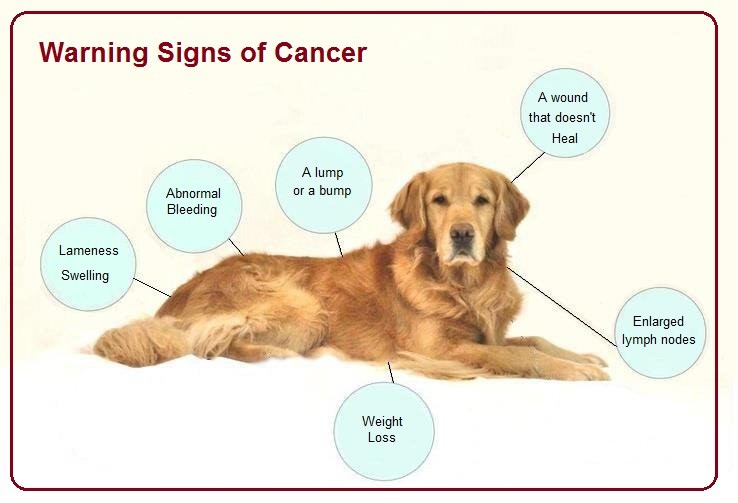
Prevention
Keeping your dog in a clean and safe environment, feeding it a high-quality diet, and utilizing the best nutritional supplements will go a long way towards keeping your dog as healthy as possible. It has been demonstrated that following good oral care practices can help reduce the incidence of oral cancers. To reduce the likelihood of female dogs from getting mammary gland cancer it is recommended to neuter them before their first heat cycle. A tumor vaccine has been developed and there is a new vaccine against oral melanomas.
Canine Breeds with the Highest Incidence of Cancer
- Rottweiler
- Bernese Mountain Dog
- Bouvier des Flandres
- German Shepherd
- Great Dane
- Labrador Retriever
- Bichon Frise
- Boxer
- Golden Retriever
- Cocker spaniel
- English Springer spaniel
- Pug
- Greyhound
- Collie
- Scottish terrier Chow
- Flat coated retriever
Skin Cancer
Most people believe their pet is safe from the harmful rays of the sun because they have a coat, but skin cancer is frequently found in dogs. All dogs have certain areas, such as the nose and pads of the feet where there is no hair to shield sensitive skin from the sun. Additionally, dogs with light-colored or thin coats are more susceptible to sun damage over their entire bodies. Three types of skin cancer are addressed below.
Melanoma
Malignant melanoma is a type of skin cancer that affects pigmented cells known as melanocytes. Most malignant melanomas occur on the gums or mucous membranes, but they can also occur in toenail beds or in footpads. These tend to grow fast and are likely to spread to other organs including the lungs and liver. These range in size and can be up to 2.5 inches in diameter and may appear to be black, brown, gray, or red in color.
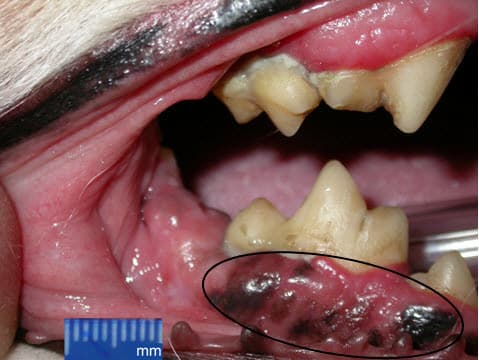
Squamous Cell Carcinoma
These tumors are raised, firm areas on the skin that have a wart-like appearance. They often occur on the abdomen, feet, and around the genitals. This form of skin cancer is also caused by sun exposure. While these cancer cells do not spread to surrounding lymph nodes, they are aggressive and may lead to destruction of surrounding tissue.
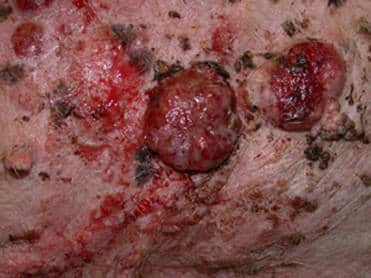
Mast Cell Tumors
This common form of skin cancer occurs in the mast cells of the immune system. Evidence suggests genetic factors are often the cause and the hormones estrogen and progesterone may affect cancer growth. Mast cell tumors are most commonly found on the trunk of the body, but can also be found on the legs. More aggressive tumors may ulcerate, leading to the development of sore, inflamed areas on the body.
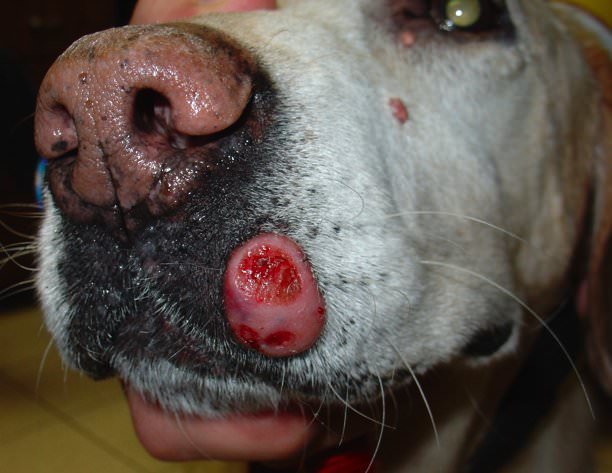
This material is provided for educational purposes only and is not intended to diagnose or treat any disease or condition. All specific treatment decisions must be made by you and your local, attending veterinarian.
RELATED PRODUCTS
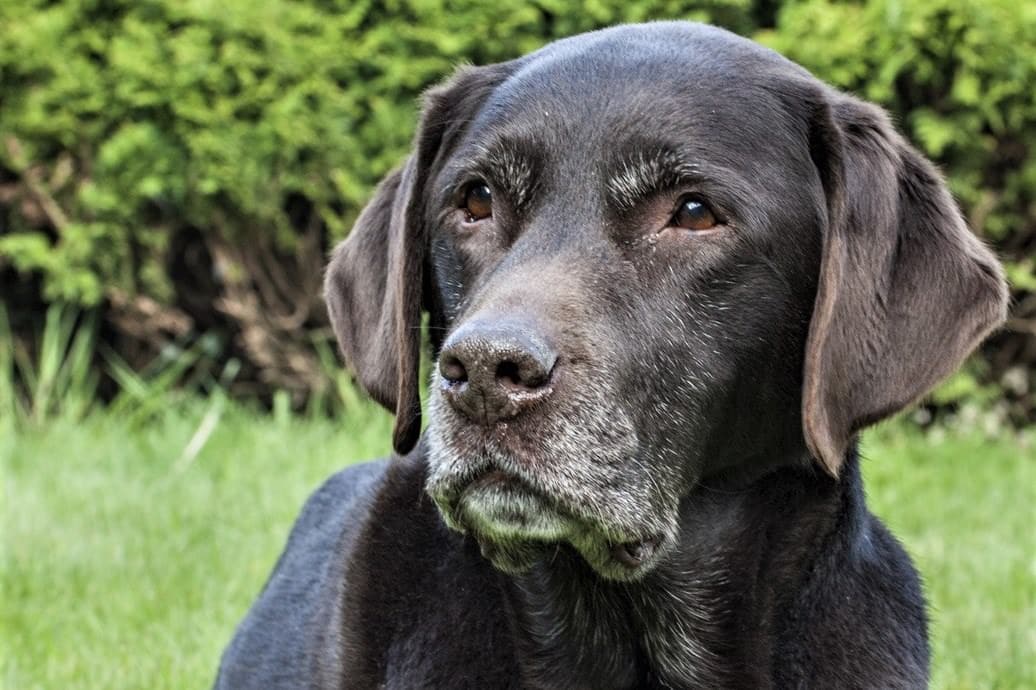

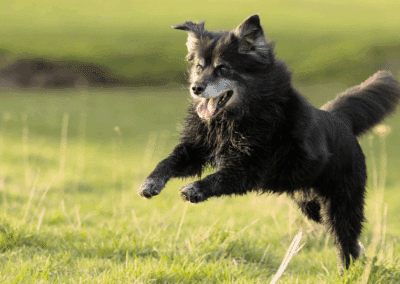
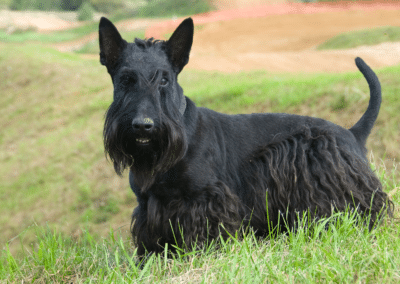

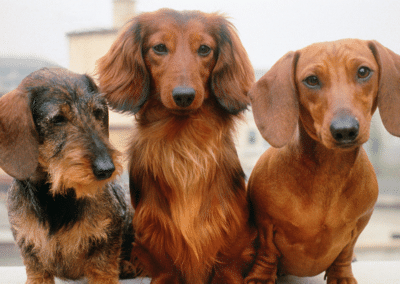



0 Comments